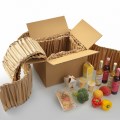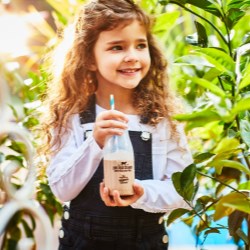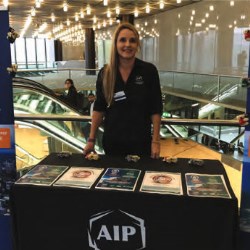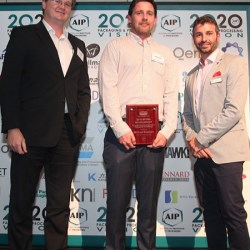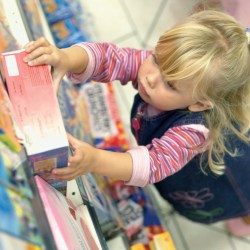If this is your company, CONTACT US to activate Packbase™ software to build your portal.

What I have seen and experienced in my global travels over recent years reinforces the fact that packaging plays a very important role in creating sustainable food chains. Packaging has a very simple role; it protects products from damage, spoilage and contamination. Sadly, the current conversations have shifted the focus off the fact that packaging is at the forefront in the development of global food systems and serves an important function to transport food from paddock to the plate.
The question of ‘What is the true role of packaging in minimising food waste?’ continues to be asked all the way around the world as consumers are having difficulty understanding the difference between food waste, packaging waste and the true purpose of packaging when talking about food. Consumers need to understand that packaging is fundamental in helping the prevention and reduction of food waste.
Unfortunately, so much of the current conversations are focused on managing the end-of-life disposal of food, instead of looking at ways of preventing the wastage in the first instance. When you shift the conversation to the food production end of the supply chain you can then focus on the reduction area of the food waste hierarchy. This discussion then focuses on reduction of physical food waste and also the role of packaging in minimising food waste.
It is important that consumers have a better understanding of the serious and health-related role that packaging actually plays in extending shelf life, keeping food protected and not contaminated, ensuring that the food can be transported across long distances, not spoil and so much more.
This is not to say that we can’t take a serious look at developing more sustainable packaging along the way and it is time that the brands stopped and looked at their packaging life cycle and the environmental issues that it may cause at end-of-life.
Unfortunately, packaging alone cannot fix the dire global issue of food waste. Packaging can, however, make a VERY big difference to how much more food makes it to those in need, rather than being wasted along the supply chain. The packaging industry can’t do this alone. Before we consider:
- Packaging design,
- Packaging materials,
- Innovative products,
- Technological advancements,
- Responsibility,
- Sustainability,
- Reusability,
- Environmental-friendliness,
- Enhanced user experience,
- Smart packaging technologies, or
- Shelf life enhancement technologies,
We MUST understand and appreciate where packaging actually fits in the supply chain.
A third of all food produced in the world goes to waste. That amounts to 1.3 billion tonnes of food per year.
In our region, from start to finish of food production, approximately
• 30% of cereals/grains are wasted
• 45% of root foods, fruit and vegetables, and oil seeds are wasted
• 20% of meat and dairy go to waste.
The commodities that one would expect go to waste most easily — meat and dairy — have the lowest percentage waste. Why is this? I ask myself why these products have managed to reduce waste when half of all fruits and vegetables go to waste. Could this not become a major focus for the packaging industry? Packaging can not only extend shelf life, preventing wastage at retail and in homes, but it can also influence consumer behaviour through smaller portion sizes, disposal systems and re-use opportunities. While the value of packaging as a strategy to minimise food waste continues to gather attention, packaging remains an undervalued strategy in comparison to other approaches.
We require an in-depth analysis into packaging opportunities and shortfalls in the retail environment, as well as more comprehensive analysis into consumers’ relationship with packaging in the home. This data should provide much more meaningful insight into how packaging can support the fight to minimise and reduce food waste. I want to emphasise the need for education from a very early age to bring greater awareness that we CAN reduce food waste and thereby reduce global poverty.
The packaging industry places a very large emphasis on the importance of packaging education and all the associated elements to creating an effective pack. The ability to minimise food waste has enormous implications from a financial, environmental and a social perspective that could lead to significant benefits. The understanding and acceptance that packaging is a solution to food waste is emerging but there are still many negative perceptions that must be overcome before people understand the role that packaging can play in finding a long-term solution to this issue.
As a part of its commitment to the National Food Waste Strategy and the United Nations Sustainable Development Goal 12:3 Responsible Consumption & Production of Food, the Australian Institute of Packaging (AIP) is focused on providing long-term education and training on The Role of Packaging in Minimising Food Waste, Save Food Packaging, Sustainable Packaging and Lifecycle Analysis.
The AIP also has a representative on the Department of the Environment and Energy National Food Waste Steering Committee and is a core participant in the Fight Food Waste Cooperative Research Centre.
- Professor Pierre Pienaar FAIP, CPP Education Director, Australian Institute of Packaging President, World Packaging Organization



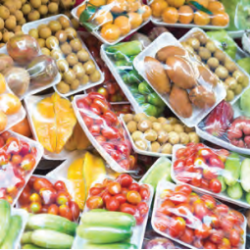

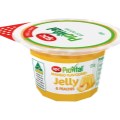


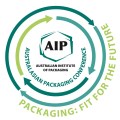
.jpg)







